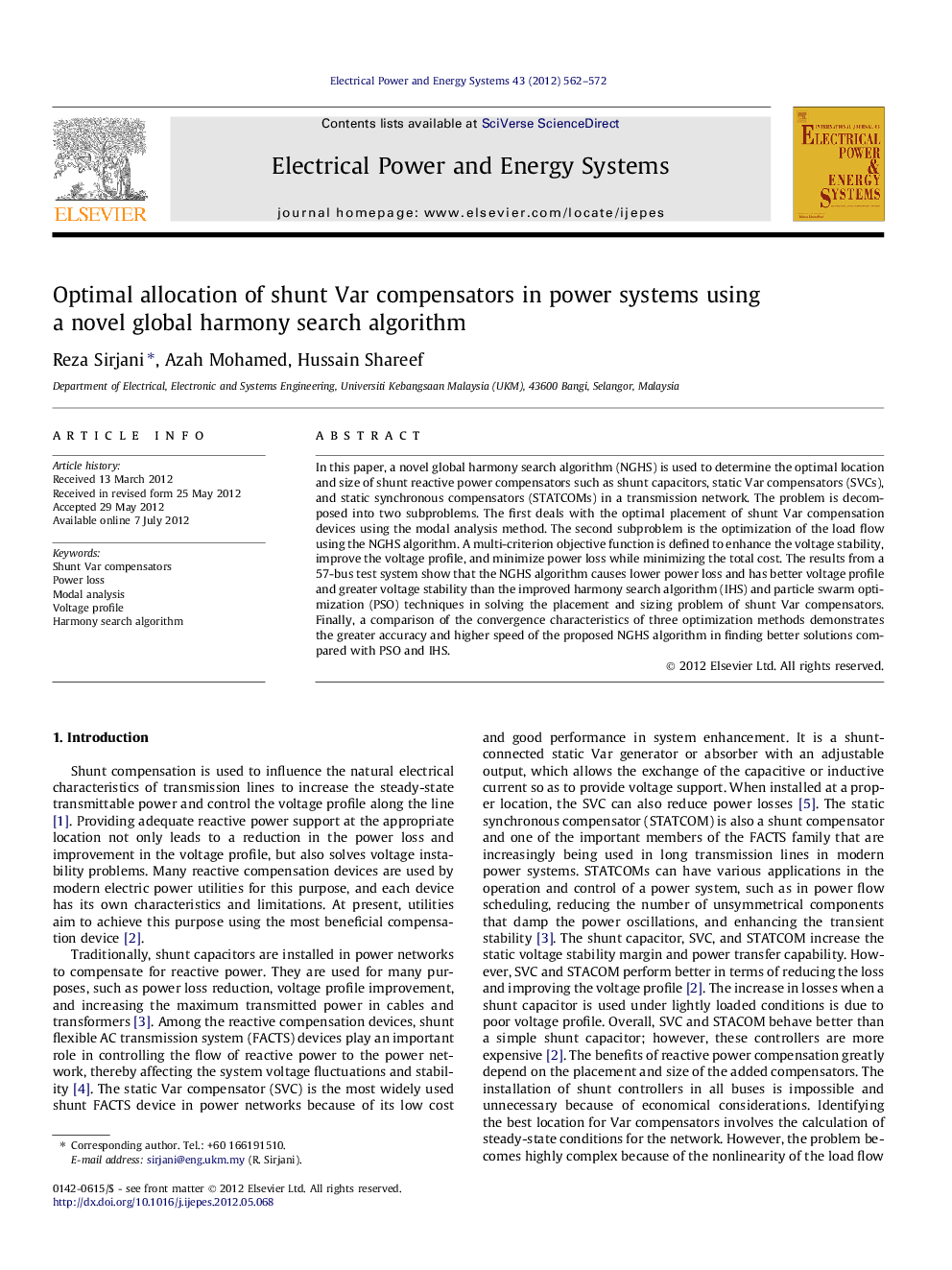ترجمه فارسی عنوان مقاله
تخصیص بهینه جبران شنت Var در سیستم های قدرت با استفاده از یک الگوریتم جستجوی هارمونی جهانی جدید
عنوان انگلیسی
Optimal allocation of shunt Var compensators in power systems using a novel global harmony search algorithm
| کد مقاله | سال انتشار | تعداد صفحات مقاله انگلیسی |
|---|---|---|
| 48021 | 2012 | 11 صفحه PDF |
منبع

Publisher : Elsevier - Science Direct (الزویر - ساینس دایرکت)
Journal : International Journal of Electrical Power & Energy Systems, Volume 43, Issue 1, December 2012, Pages 562–572
ترجمه کلمات کلیدی
جبران شنت ور؛ افت قدرت؛ تجزیه و تحلیل مودال؛ مشخصات ولتاژ؛ الگوریتم جستجوی هارمونی
کلمات کلیدی انگلیسی
Shunt Var compensators; Power loss; Modal analysis; Voltage profile; Harmony search algorithm

